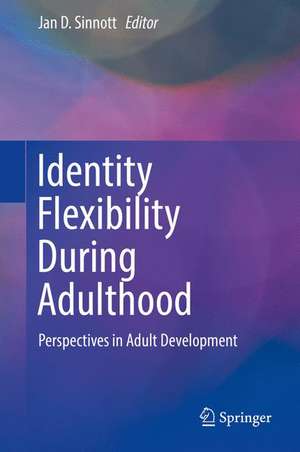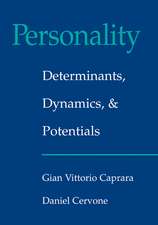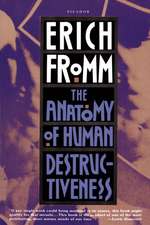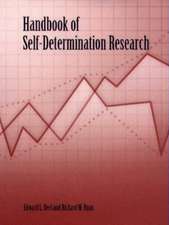Identity Flexibility During Adulthood: Perspectives in Adult Development
Editat de Jan D. Sinnotten Limba Engleză Hardback – 22 sep 2017
Although this volume discusses a wide variety of aspects of identity as it flexibly changes during adulthood in the face of numerous experiences, it is really addressing one key question. How adaptive and fluid is identity and how can we know ourselves as both continuing and changing? Exploring these ideas raises the importance of future research on adult identity.
With a firm grounding in the historical and theoretical background of identity research, this volume begins by defining identityand the psychological “self” as a center around which the person’s behaviors and self-concepts revolve. The following chapters gather the wisdom of many writers who all accepted the challenge of talking about creating a flexible adult self and identity during adulthood. They come at this challenging question from many different perspectives using different tools. Some survey existing literature and theory, then summarize prior work in a meaningful way. Some discuss their own research; some reflect on personal experiences that have demanded a flexible identity. Also included in the coverage are discussions of methodology and validity issues for studies and scales of identity. With its dual focus on research and applied fields ranging across social and personality psychology, industrial/occupational psychology, cross-cultural psychology, mental health, existential issues, relationships, and demographic categories, Identity Flexibility During Adulthood: Perspectives on Adult Development is a fascinating and complex resource for psychologists, sociologists, anthropologists, gerontologists, and all those interested in our changing identities.
| Toate formatele și edițiile | Preț | Express |
|---|---|---|
| Paperback (1) | 586.95 lei 39-44 zile | |
| Springer International Publishing – 10 aug 2018 | 586.95 lei 39-44 zile | |
| Hardback (1) | 953.35 lei 6-8 săpt. | |
| Springer International Publishing – 22 sep 2017 | 953.35 lei 6-8 săpt. |
Preț: 953.35 lei
Preț vechi: 1162.61 lei
-18% Nou
Puncte Express: 1430
Preț estimativ în valută:
182.43€ • 198.96$ • 153.82£
182.43€ • 198.96$ • 153.82£
Carte tipărită la comandă
Livrare economică 24 aprilie-08 mai
Preluare comenzi: 021 569.72.76
Specificații
ISBN-13: 9783319556567
ISBN-10: 3319556568
Pagini: 376
Ilustrații: XIV, 342 p. 5 illus., 4 illus. in color.
Dimensiuni: 155 x 235 mm
Greutate: 0.67 kg
Ediția:1st ed. 2017
Editura: Springer International Publishing
Colecția Springer
Locul publicării:Cham, Switzerland
ISBN-10: 3319556568
Pagini: 376
Ilustrații: XIV, 342 p. 5 illus., 4 illus. in color.
Dimensiuni: 155 x 235 mm
Greutate: 0.67 kg
Ediția:1st ed. 2017
Editura: Springer International Publishing
Colecția Springer
Locul publicării:Cham, Switzerland
Cuprins
Contents.- Preface.- Part One: Concepts of Identity.- 1.On the Stability of Identity Interacting with the Impermanence of Time Evangeline A. Wheeler.- 2. Cognitive Underpinnings of Identity Flexibility in Adulthood Jan D. Sinnott.- Part Two: Research, Theory, Personal Experiences.- 3. Identity Flexibility and Wisdom in Adulthood: The Roles of a Growth-Oriented Identity Style and Contemplative Processes Sherry L. Beaumont.- 4. In Experiential Exploration of Identity during Emerging Adulthood: The Impact of Growth Experiences on Emerging Adulthood Characteristics Luke Boardman.- 5. Bridging the Gap: Black Immigrant Identities and Dreams of Home Leonie J. Brooks.- 6. Flexibility in Persons with Dementia Cameron J. Camp.- 7. Spirituality as a Framework for Confronting Life’s Existential Questions in Later Adulthood John C. Cavanaugh.- 8. Rural-urban Migration, Quality of Life, and Identity Commitments among Badaga People of South India Gareth Davey.- 9. The Concurrent Paths of ParentalIdentity and Child Development Maria P. Fracasso.- 10. “Like a Constantly Flowing River”: Gender Identity Flexibility among Non-binary Transgender Individuals M. Paz Galupo, Lexi K. Pulice-Farrow, and Johanna L. Ramirez.- 11. Identity Stories to Jettison Louise Green.- 12. Work and Identity Flexibility Carol Hoare.- 13. Moving from Student to Professional Shaina A. Kumar.- 14. Play, Flow, and Tailoring Identity in Middle Adulthood Kevin Rathunde and Russell Isabella.- 15. Optimizing Challenges: Eminent Elders Meet Adversity with Identity Flexibility Grant J. Rich.- 16. Identity Flexibility and Buddhism Jeff Rosenberg.- 17. Identity Revised: A Clinician’s Perspective on what an Identity-based Model of Mind Looks Like Vedat Sar.- 18. Caregiving Identity and Flexibility Kim Shifren.- 19. Dual Identities and the Artist Valerie Smith.- 20. The Sick Self Betsey Stellhorn.- 21. “Just When I Knew All of Life’s Answers, They Changed the Questions”: A Eudaimonist Perspective on Identity Flexibility During the Adult Years Alan S. Waterman.
Notă biografică
Jan D. Sinnott, PHD, is a Professor of Psychology at Towson University in Baltimore, MD, and a Licensed Psychologist. She specializes in Lifespan Positive Development and the applications of existential, transpersonal, mind-body and positive psychology to adult growth and development. After completing a Postdoc at the National Institute on Aging, she developed her theory of complex problem-solving in adulthood, termed Complex Postformal Thought. She has authored or co-authored over 100 scholarly and applied books and publications. Her research team is currently studying Complex Problem-solving, Concepts of the Self, Intelligence, Mindfulness, and Satisfaction in Intimate Relationships. Her recent books include: Positive Psychology: Advances in Understanding Adult Motivation (2013, Springer) and Adult Development: Cognitive Aspects of Thriving Close Relationships (2014, Oxford University Press).
Textul de pe ultima copertă
This volume seeks to explore the idea of identity as a flexible center of events around which aspects of the self and events in the outside world are organized. Historically, in much of the literature, identity was conceptualized as a somewhat fixed, unchanging construct. Scholars now have a greater awareness of more nuanced theories about identity and there is a greater willingness to accept that identity is not fixed, concrete, and permanent, but rather evolving and fluid.
Although this volume discusses a wide variety of aspects of identity as it flexibly changes during adulthood in the face of numerous experiences, it is really addressing one key question. How adaptive and fluid is identity and how can we know ourselves as both continuing and changing? Exploring these ideas raises the importance of future research on adult identity.
With a firm grounding in the historical and theoretical background of identity research, this volume begins by defining identity and thepsychological “self” as a center around which the person’s behaviors and self-concepts revolve. The following chapters gather the wisdom of many writers who all accepted the challenge of talking about creating a flexible adult self and identity during adulthood. They come at this challenging question from many different perspectives using different tools. Some survey existing literature and theory, then summarize prior work in a meaningful way. Some discuss their own research; some reflect on personal experiences that have demanded a flexible identity. Also included in the coverage are discussions of methodology and validity issues for studies and scales of identity. With its dual focus on research and applied fields ranging across social and personality psychology, industrial/occupational psychology, cross-cultural psychology, mental health, existential issues, relationships, and demographic categories, Identity Flexibility During Adulthood: Perspectives on Adult Development is a fascinating and complex resource for psychologists, sociologists, anthropologists, gerontologists, and all those interested in our changing identities.
Although this volume discusses a wide variety of aspects of identity as it flexibly changes during adulthood in the face of numerous experiences, it is really addressing one key question. How adaptive and fluid is identity and how can we know ourselves as both continuing and changing? Exploring these ideas raises the importance of future research on adult identity.
With a firm grounding in the historical and theoretical background of identity research, this volume begins by defining identity and thepsychological “self” as a center around which the person’s behaviors and self-concepts revolve. The following chapters gather the wisdom of many writers who all accepted the challenge of talking about creating a flexible adult self and identity during adulthood. They come at this challenging question from many different perspectives using different tools. Some survey existing literature and theory, then summarize prior work in a meaningful way. Some discuss their own research; some reflect on personal experiences that have demanded a flexible identity. Also included in the coverage are discussions of methodology and validity issues for studies and scales of identity. With its dual focus on research and applied fields ranging across social and personality psychology, industrial/occupational psychology, cross-cultural psychology, mental health, existential issues, relationships, and demographic categories, Identity Flexibility During Adulthood: Perspectives on Adult Development is a fascinating and complex resource for psychologists, sociologists, anthropologists, gerontologists, and all those interested in our changing identities.
Caracteristici
Addresses the idea of adult identity as a constructed, flexible aspect of human experience Focuses beyond the person to examine the interpersonal and world context of identity creation Contributions range across theoretical, experimental, developmental, cognitive, and applied aspects of identity flexibility














